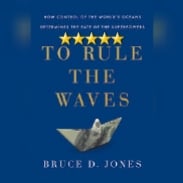(Mostly) Solid Examination Of History And Current Events. This is a fairly well documented – nearly 100 pages of its 400 are bibliography, *in addition to* at least a few paragraphs of footnotes at the end of every chapter – examination of both the history and current events of why both commercial and military control of the oceans is so important to human advancement. Some of the facts presented are truly mind-boggling, such as the sheer size of the Maersk Madrid – a ship used as a recurring case study, where if its full load of possible shipping containers were transported in a standard 2-high rail configuration, the train just to load this singular ship would stretch for *78 miles*. Others are more “standard fare” for most anyone who knows anything about the history of ocean travel or oceanography. Still, the book is current through March 2021, which is remarkable considering that I acquired this ARC in early June 2021. A must-read on a wide variety of issues from the complexities of modern logistics to the root cause and practical implications of modern military struggles to even the loss of American manufacturing jobs and the rise of Donald Trump, this book shows how control of the oceans has impacted all of these topics and many, many more. Really the only more “YMMV” section is the emphasis on global warming/ global cooling / climate change/ whatever they’re calling it these days alarmism in the final section, but even here there are enough actual facts to warrant close examination. Very much recommended.
This review of To Rule The Waves by Bruce Jones was originally written on July 20, 2021.


